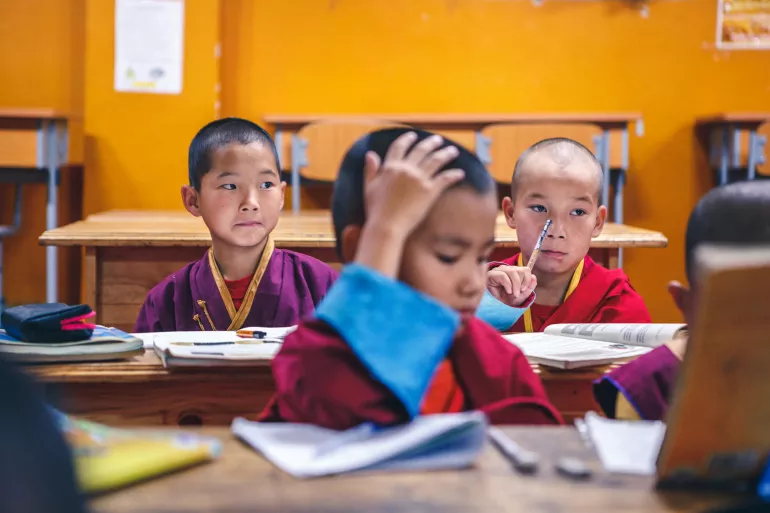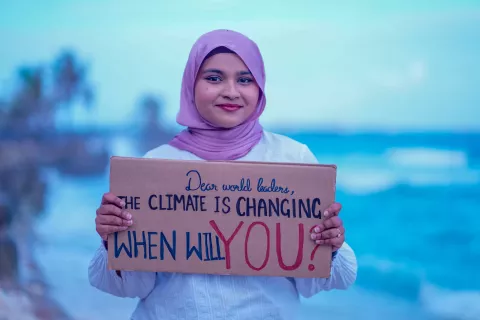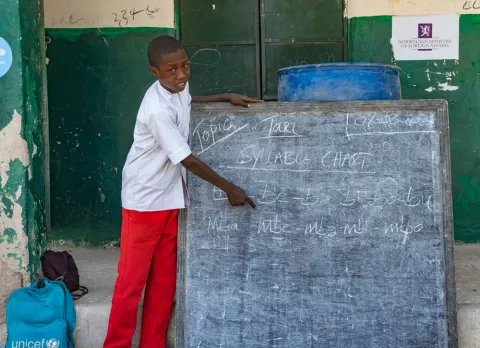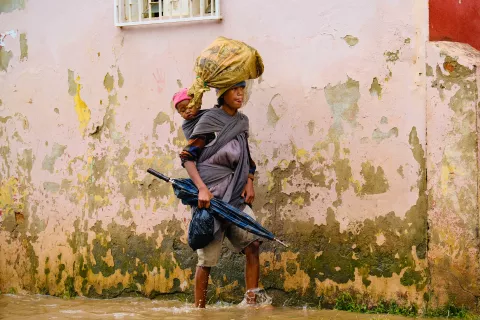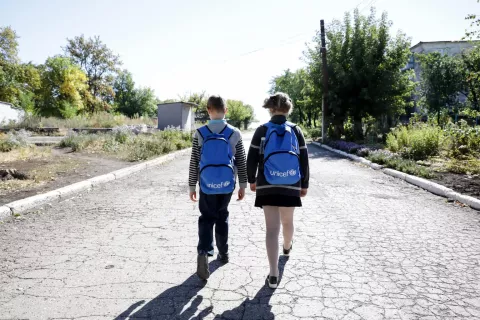When Deaconess Juliet Eneh spoke at the Joint Learning Initiative on Faith and Local Communities’ (JLI) recent series on child participation, her message was clear: when children have a voice, violence against children goes down.
It was this reasoning that led her to help establish Christ Care. This mentoring program educates Nigerian children about protecting themselves from abuse and reporting cases of abuse to the authorities. Juliet is one of many faith leaders worldwide taking action to end violence against children. Like others, her work is both revolutionary and rooted in tradition: both empowering children to challenge abusive social hierarchies while also drawing on faith teachings on child rights.
Before the COVID-19 pandemic, the extent to which girls and boys experience violence across all stages of childhood has been well-documented. It most often takes place at the hands of trusted individuals with whom they interact on a daily basis. For example, an estimated 300 million children aged 2-4 were regularly subjected to violent discipline at home. All indications we have received so far suggest that the disruptions and containment measures associated with COVID-19 may have increased the frequency and intensity of this violence. At the same time, children have been cut off from many of the positive and supportive relationships they rely on when in distress, including at school, in the extended family or the community; and the family and child welfare services upon which many rely may have been interrupted. The need for action to end violence against children must be seen as a collective priority.
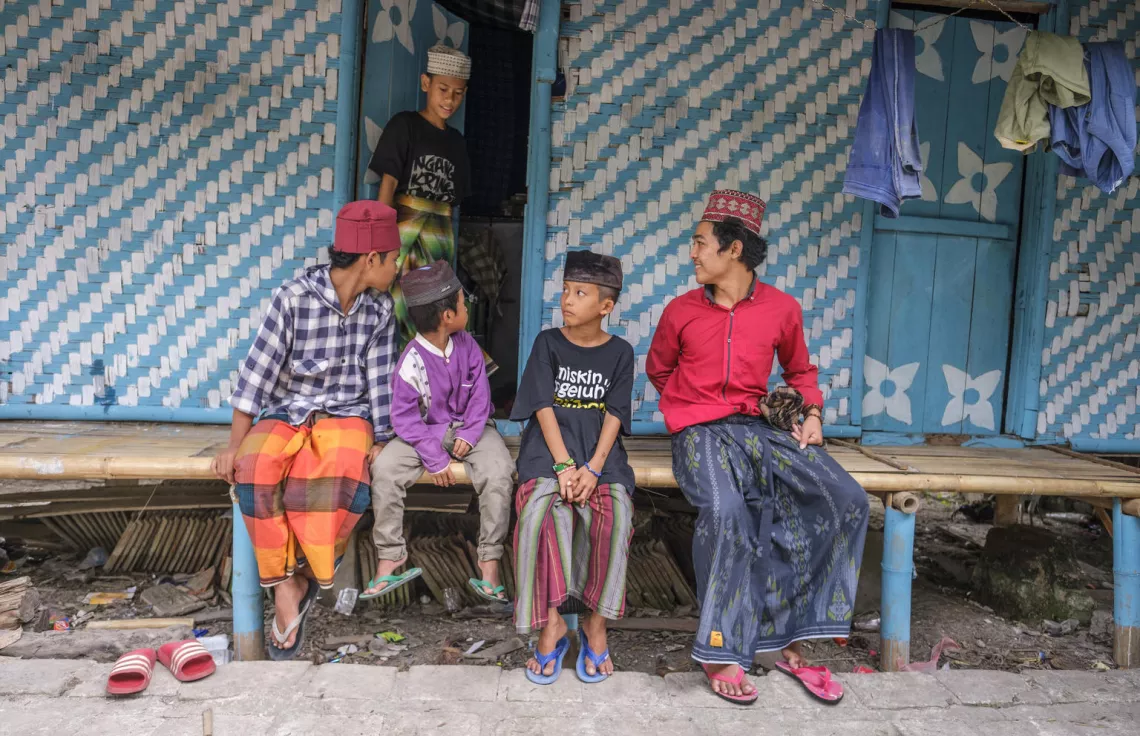
The JLI’s Evidence Guide on Ending Violence Against Children notes that an essential tool to end violence against children is meaningful child participation. Hierarchical social structures, which place children at the bottom – depriving them of voice and agency – make children vulnerable to violence. Child participation challenges and dismantles the social structures that harm children – ultimately creating communities that are safer for children.
In a world where 84 per cent of people identify as religious, faith actors are critical allies in promoting child participation.
The JLI’s Ending Violence Against Children Learning Hub (EVAC Hub) — of which UNICEF is a core member — was founded in 2018 by researchers, practitioners and policymakers to explore the roles that faith actors play in ending violence against children. In a world where 84 per cent of people identify as religious, faith actors are critical allies in promoting child participation. The Evidence Guide makes the case that local faith actors are often highly trusted authorities in their communities – presenting them with a strong spiritual mandate to promote children’s rights and challenge harmful social norms.
Child participation is a principle embedded in many faith traditions
In our recent webinar exploring multi-religious perspectives on child participation, faith leaders spoke of how they drew on their own faith traditions to promote child participation:
A Rabbi from Panama outlined how the Jewish ritual of Passover acts as a platform for inter-generational dialogue, with children “adopting the role of questioner.”
In Lebanon, a family court judge consulted children extensively in his legal rulings, thanks to the Prophet Muhammad’s inclusive treatment of children.
In another webinar on practical examples of child participation, we heard about a child peacebuilding project in Sri Lanka. The project brought together Christian, Buddhist, Hindu and Muslim children to take joint actions such as engaging with each other’s faith celebrations and rituals and cleaning up public spaces. What was most illuminating was the project’s ripple effect; increasingly, the broader communities began to trust one another more due to the children’s relationships.
Many faith actors – like Deaconess Juliet Eneh – are already working to make child participation a practical reality in their communities. In some cases, they have found that child participation not only improves the lives of children as well as the whole community.
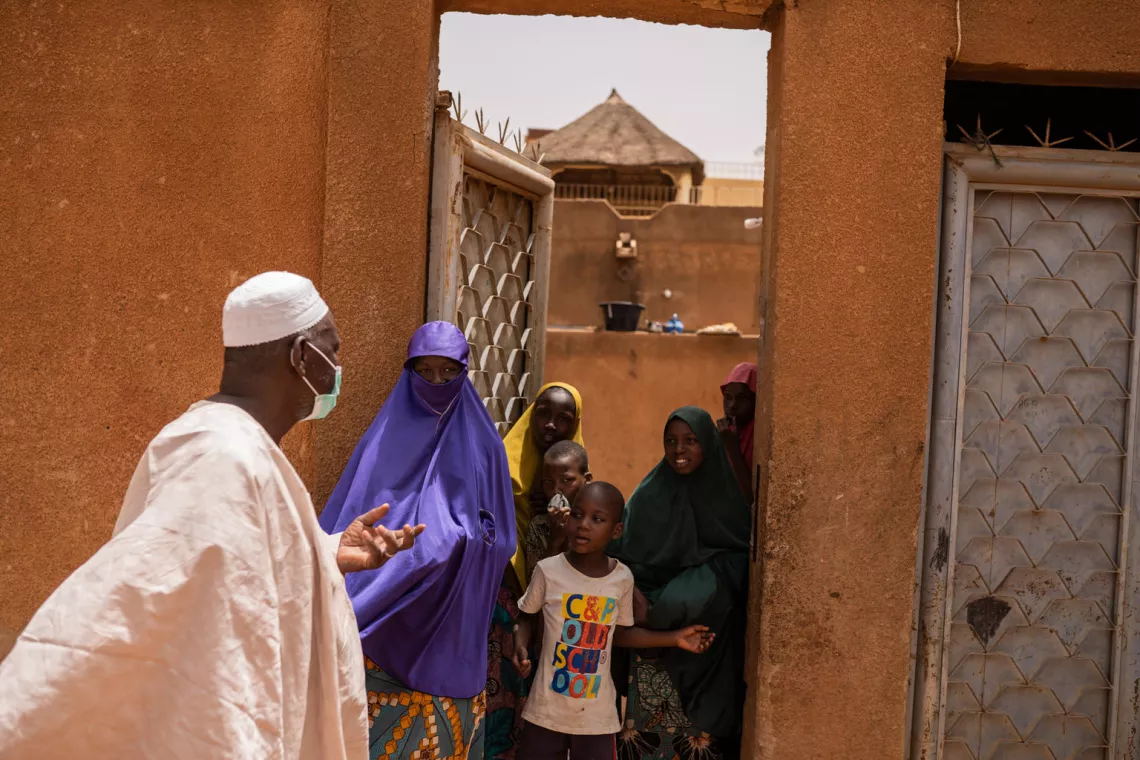
While faith actors might seem ideal partners to implement child participation, the reality is that some faith actors lack the capacity to do so. Others may even enable the social hierarchies that harm children, such as viewing children as the ‘property’ of adults or inferior to adults, therefore subjecting them to harsher and less dignified treatment. During an intergenerational dialogue on child participation, co-hosted by JLI and Arigatou International, children made clear how much work faith actors still had to do. “Nobody ever really asks a child what they would like to see at church”, a Christian girl from South Africa commented, “[that’s why] children…don’t want to go to church. They don’t feel like anybody understands them.”
Creating meaningful child participation can be revolutionary. For faith actors, that revolution can also be rooted in faith traditions that emphasize humankind’s equality and the inherent rights and dignity of children. Faith actors often enjoy high levels of trust among their communities, making them well placed to navigate changes in local power dynamics.
Children understand this. When we listened to the children speak during the intergenerational dialogue, their messages were clear. Whether Bahá’í, Christian or Muslim, whether from Chile, Pakistan or South Africa, all of them agreed on the critical role of faith actors in protecting and promoting child participation. As a young boy from Pakistan stated: “the most important thing that [faith leaders] can do is changing the behavior of the people. Because people trust faith leaders”.
We invite you to join the JLI EVAC Hub here.
Written jointly by the Co-Chairs of the JLI Ending Violence Against Children Learning Hub
Dr. Carola Eyber, Queen Margaret University
Neelam Fida, Islamic Relief Worldwide
Andrea Kaufmann, World Vision International
Silvia Mazzarelli, Arigatou International

